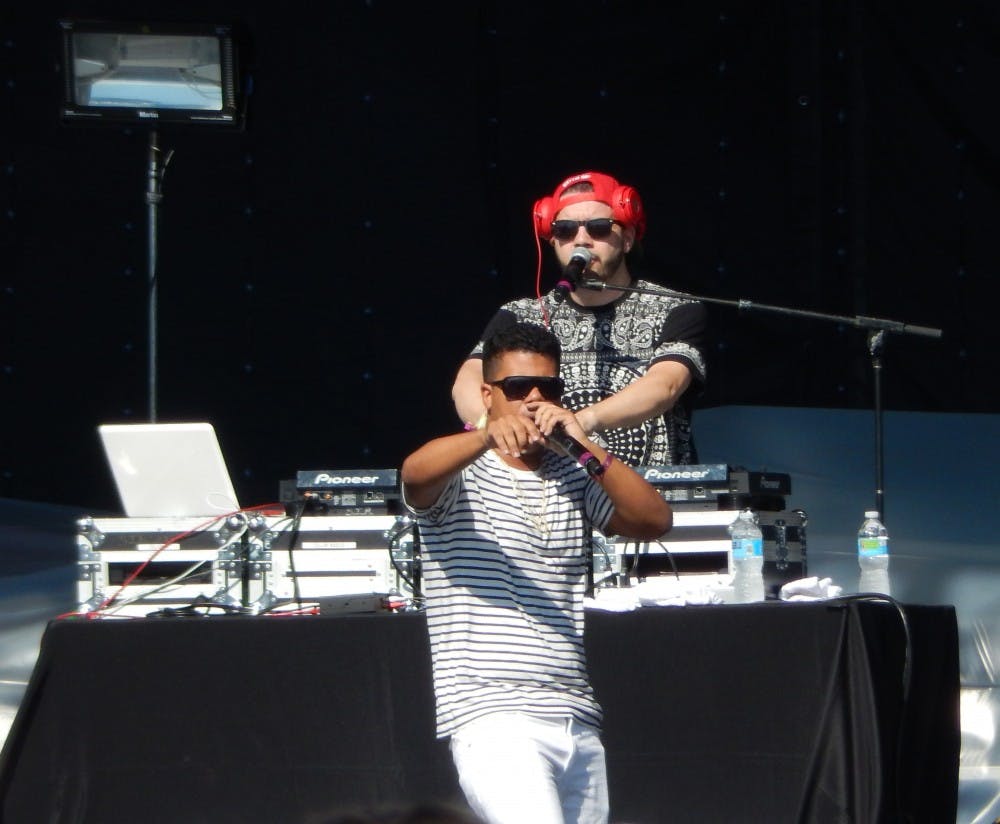Hip-hop culture has previously failed to treat members of the LGBTQ community with open arms. Recently, the tides in the genre have changed and hip-hop has become fairer to LGBTQ artists.
Last week, hip-hop artist ILoveMakonnen took to Twitter to tell his fans about his sexuality. The famous “Tuesday” singer revealed that he was gay after years of rumors circling around him.
“As a fashion icon, I can’t tell [you] about everybody else’s closet, I can only tell [you] about mine, and it’s time I’ve come out,” Makonnen said.
Another lesser known act joined Makonnen last week in coming out of the closet. Taylor Bennett, younger brother of Chance the Rapper, revealed on Twitter that he was bisexual. Bennett decided to come out on his 21st birthday to be “more open” with himself and to “help others that struggle” with their own identity.
Rappers coming out of the closet would have shocked hip-hop heads in the ’90s and early ’00s, but thanks to past announcements, hip-hop is becoming less critical.
In 2012, singer Frank Ocean disclosed on his Tumblr that he was once in love with a man. Ocean was mostly met with words of encouragement. That same year, rapper Azealia Banks came out as bisexual.
Hip-hop showing support for homosexuality and bisexuality is a reversal from the genre’s narrow-minded past. Rappers like Cam’ron and Lil’ Wayne often found use for the phrase “no homo” in their lyrics.
In an interview with Hot 97, Cam’ron said that the derogatory phrase was “installed” in his vocabulary. Cam’ron, despite saying he was far from being homosexual himself, found it necessary to use the phrase to counter any “questionable” things he said.
“It isn’t about being gay, it’s about saying something gay,” Cam’ron said.
“No homo” was a way for rappers to shoot down being gay, revealing the insecurities of heterosexual rappers at the time. Rap’s alignment with the phrase “no homo” was used to entertain heterosexual audiences and mock the idea of the LGBTQ community participating in hip-hop.
Hip-hop’s heavy comfort with heteronormativity, however, has been toned down in recent years. Acts such as Kanye West have combatted against hip-hop’s homophobia and the difficulties it has caused LGBTQ artists trying to make it big in the scene.
In a 2005 interview with MTV, West recalled being in high school and how it affected his views on homosexuality.
“If you see something and you don’t want to be that because there’s such a negative connotation towards it, you try to separate yourself from it so much that it made me homophobic,” West said.
West found himself “racing” to find a “constant, masculine role model” and using derogatory terms like “fag” toward the LGBTQ community. When West found out that his cousin was gay, he changed his tone and examined hip-hop’s homophobia.
“The exact opposite word of ‘hip-hop’ I think is ‘gay,’” West said. “Like yo, you play a record and it’s wack, ‘That’s gay dog’. If it’s good, ‘That’s that hip-hop, right there.’”
West urged rappers to take a stand with him and his revelation as an ally has led others in hip-hop to share similar sentiments.
Rapper Lil B, known for his “Based God” persona, announced in 2011 that his fifth album would be titled I’m Gay (I’m Happy). The album’s title was highly controversial at the time and led to the rapper receiving death threats.
During an interview with MTV, Lil B revealed he wasn’t using the title for publicity but rather to show his support to the LGBTQ community.
“A lot of my supports have turned on me. That’s fine, because you know what? They didn’t love me for real anyway,” Lil B said.
Artists and audiences have pushed for a more tolerant atmosphere but there are still those that disagree.
In 2016, Southern rapper Boosie Badazz said that TV is making children gay and expressed that he wouldn’t want his own children to be gay. In 2013, former Brand Nubian rapper Lord Jamar disagreed with inclusion in hip-hop, saying that there is no place for homosexuality in the genre.
The artists that have shown opposition to rap’s openness, however, are well past their primes. Today, there is far less of an opposition to LGBTQ identities in the hip-hop world.
Hip-hop is becoming more fluid toward differences and the recent wave of artists coming out is a sign of what lies ahead. Makonnen and Bennett are far from hip-hop greats but they have made legendary moves by opening up about their sexualities.
Benjamin Blanchet is the assistant arts editor and can be reached at benjamin.blanchet@ubspectrum.com

Benjamin Blanchet is the senior engagement editor for The Spectrum. His words have been seen in The Buffalo News (Gusto) and The Sun newspapers of Western New York. Loves cryptoquip and double-doubles.





